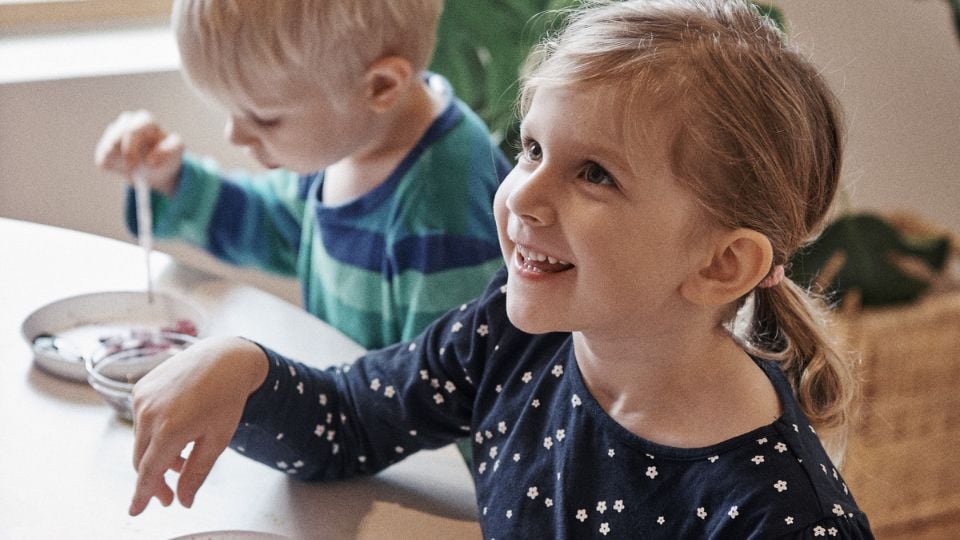What is Positive Pedagogy and its benefits in Early Education?

What is Positive Pedagogy?
The concept of Positive Pedagogy is a new approach to education, that emerged from the field of positive psychology in the late 1990s. The movement was propelled by scholars like Martin Seligman who focused on well-being and personal strengths rather than just remediating psychological problems.
Positive Pedagogy is a paradigm shift from traditional methods because traditional education often focuses on rote learning and discipline, potentially overlooking the individual's emotional and social needs. Positive Pedagogy emerged as a response, seeking to create a balanced educational experience that supports all aspects of a child's development.
Today, Positive Pedagogy is recognized and implemented worldwide, with Finland being a notable example. Finnish educational systems have integrated Positive Pedagogy principles, emphasizing student autonomy, teacher collaboration, and a child-centric approach.
If you wish to learn more about Finland's Early Childhood Education, download our free digital handout that is created to answer all of your questions!
The Philosophy of Positive Pedagogy
Positive Pedagogy goes beyond simply acquiring knowledge and instead focuses on nurturing a learner's character, emotional intelligence, and social skills. It is rooted in the belief that education should be an act of love, providing a safe and encouraging environment for children to explore their full potential without any limitations or fears. By embracing a co-participatory approach, Positive Pedagogy empowers children to develop a sense of agency within a supportive social context, which is essential for their overall socio-emotional well-being.
In a real-life scenario, the teacher not only recognizes the child's creativity but also encourages them to share their artwork with the entire group. Rather than silencing the child and asking them to wait their turn, the teacher appreciates the effort and intricate details in the drawing, reinforcing positive behavior.
.jpg?width=800&height=450&name=positive%20pedagogy%20philosophy%20(1).jpg)
5 Benefits of Positive Pedagogy in Early Childhood Education
Positive Pedagogy in early childhood education offers children a multitude of benefits that extend across cognitive, social, and emotional domains.
1. Developing Social Skills
One of the key aspects of Positive Pedagogy is the emphasis on social skill development. Teachers who encourage positive interactions among children help them grow their ability to connect with others. When kids are praised for good behavior and kindness, they tend to repeat these behaviors. Positive attention in the classroom creates a sense of belonging and acceptance. Children who feel valued by their peers and educators are more likely to form positive social connections and feel a part of their community.
2. Nurturing Autonomy and Agency
Positive Pedagogy also strongly encourages autonomy and agency. Research shows that when children are allowed to reflect on positive events and make choices in their learning journey, they develop a strong sense of self. This freedom leads to intrinsic motivation, where children engage in activities because they genuinely enjoy them. Such motivation is linked to greater persistence, enthusiasm, and a lifelong love for learning. Autonomy not only fosters this love for learning but also helps children approach new challenges with curiosity and a growth mindset.
3. Fostering Lifelong Enthusiasm for Learning
A fundamental goal of Positive Pedagogy is to instill a lifelong enthusiasm for learning. When learning is made fun of and children are given the freedom to choose and explore, they develop a deep-seated love for learning. This approach transforms education into an exciting journey of discovery, keeping learning enjoyable and engaging for children.
4. Building Resilience and Perseverance
Another significant benefit of Positive Pedagogy is the development of resilience and perseverance in children. When children get lots of positive feedback, they feel better about themselves and believe they can do many things. This kind of support makes them more confident. Confident children are brave enough to try new things and keep going, even when things get tough.
5. Enhancing Emotional Regulation for Academic Success
Emotional intelligence is a critical component of Positive Pedagogy. When children experience positive interactions, they are better equipped to manage stress and navigate challenging situations. This emotional strength is crucial in academic settings, making learning enjoyable and manageable. Hence, children are better positioned to achieve academically.
Conclusion
Positive Pedagogy represents a paradigm shift in early childhood education. It puts well-being at the center of the educational experience, cultivating not only academic skills but also the emotional and social competencies that children need to thrive in life. As this approach continues to gain traction, we are likely to see a generation of learners who are not only knowledgeable but also happy, resilient, and well-adjusted individuals.
.jpg?width=140&height=140&name=Positive%20pedagogy%20conclusion%20(1).jpg) At HEI Schools, we are deeply committed to incorporating Positive Pedagogy into every aspect of our core curriculum. We firmly believe that by embracing this approach, we can create a nurturing and empowering learning environment that fosters the holistic development of each child. Learn more about our curriculum and how it has been recognized and applied globally.
At HEI Schools, we are deeply committed to incorporating Positive Pedagogy into every aspect of our core curriculum. We firmly believe that by embracing this approach, we can create a nurturing and empowering learning environment that fosters the holistic development of each child. Learn more about our curriculum and how it has been recognized and applied globally.



